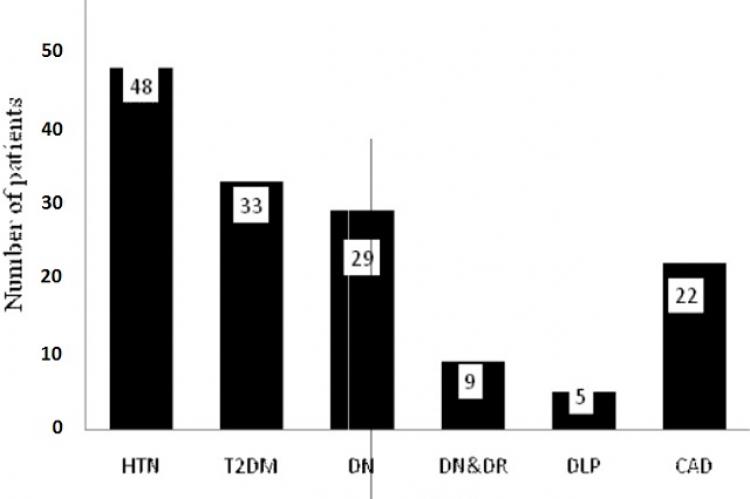Anemia, a common manifestation of end stage renal disease (ESRD), results from decreased Erythropoietin due to inadequate renal secretion of erythropoietin (EPO).This study aimed to evaluate iron status of dialysis patients and to assess current practice of anemia management with Kidney Disease Improving Global Outcomes (KDIGO) guidelines. A retrospective, observational single centre study was conducted in haemodialysis unit of a tertiary care hospital in south India from January to August 2014. Patients were selected based on inclusion and exclusion criteria. Patients with age ≥ 18 years with ESRD were selected and Patients on radiation or chemotherapy were excluded from the study. Patient Data including demographic details and pertinent laboratory values were collected from electronic medical records and cross checked with manually maintained medical records wherever necessary. Among 48 patients studied there was a male preponderance of 67%. Mean age was 59.4±10.5 years and majority were undergoing hemodialysis twice weekly (82%) and remaining thrice weekly. Mean Hemoglobin value was 10.0±0.24 g/dL. But 23(47.9%) patients had mean Hemoglobin values between 10-11.5 the targets recommended by KDIGO guideline. Mean serum Ferritin concentration was 589.3 ng/mL. Mean Transferrin saturation (TSAT) value was 29.86±11.9%. Data on serum Ferritin and TSAT was available for 44(91%) patients. Out of these only 11(25%) patients had adequate iron stores recommended by KDIGO guideline. Majority of the patients Iron stores were not adequate as per the recommendations of KDIGO guideline so an appropriate iron replacement therapy with measures to enhance adherence to treatment should be planned.
View:
- PDF (364.3 KB)


